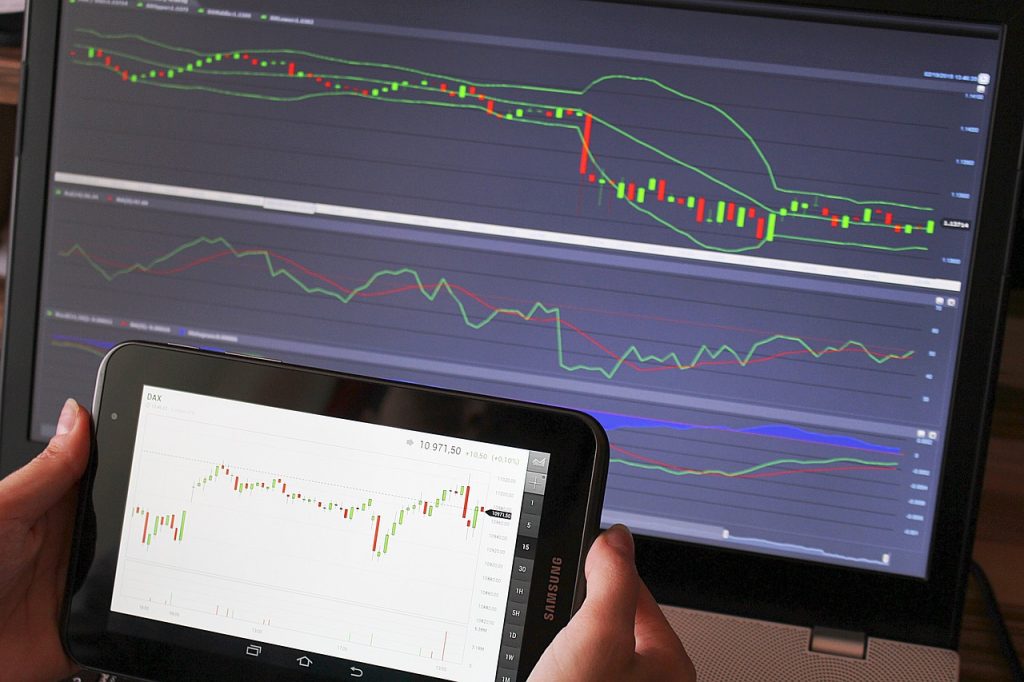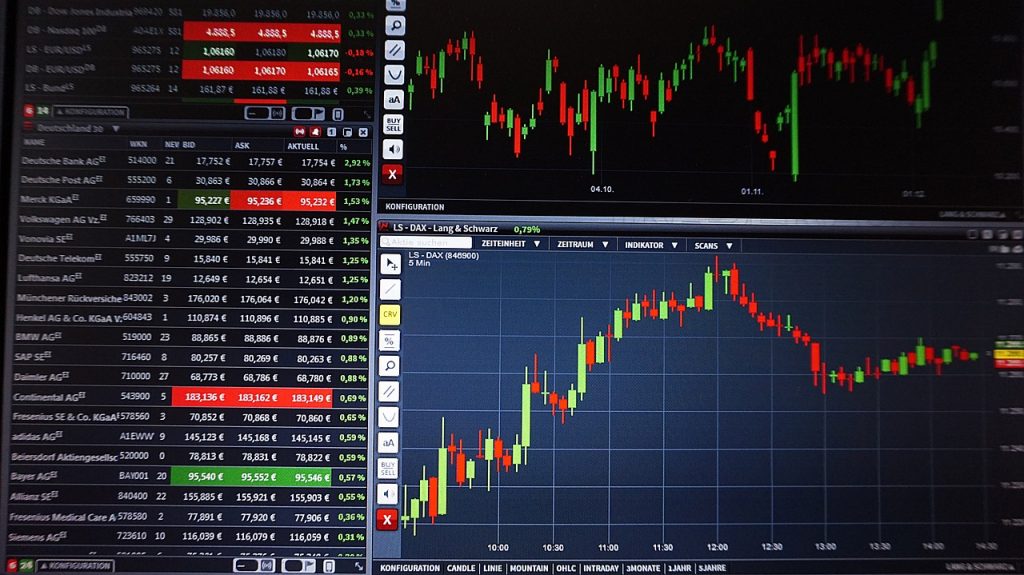If you’ve ever wondered whether Forex trading can be a profitable investment, you’re not alone. The world of trading foreign exchange, commonly known as Forex, is attracting the attention of many individuals looking to make their money work for them. With its potential for high returns and accessibility to global markets, Forex trading has garnered interest from both seasoned investors and newcomers alike. In this article, we’ll explore the ins and outs of Forex trading, weighing the risks against the rewards to determine whether it can indeed be a good investment option for you.
What is Forex Trading?
Understanding Forex Trading
Forex trading, also known as foreign exchange trading, refers to the buying and selling of currencies in the global marketplace. Unlike the stock market, which focuses on the trading of stocks, forex trading involves the exchange of one currency for another. This can be done through various financial institutions, such as banks, brokers, and electronic trading platforms. The main objective of forex trading is to profit from the fluctuations in currency exchange rates.
How Forex Trading Works
Forex trading operates on the principle of currency pairs. Each pair consists of a base currency and a counter currency. For example, in the EUR/USD pair, the euro is the base currency, and the US dollar is the counter currency. When trading forex, you can either go long (buy) or go short (sell) on a currency pair. If you believe that the base currency will appreciate in value compared to the counter currency, you would go long. Conversely, if you anticipate the base currency to depreciate, you would go short.
In forex trading, you can profit from both rising and falling markets. When you go long on a currency pair and its value increases, you can sell it at a higher price to realize a profit. On the other hand, when you go short and the value of the currency pair declines, you can buy it back at a lower price to make a profit. The concept of leverage is also commonly used in forex trading, allowing traders to control larger positions with a smaller initial investment.
Pros and Cons of Forex Trading
Pros of Forex Trading
Forex trading offers numerous advantages for traders. Firstly, it provides a high level of liquidity, ensuring that there are always buyers and sellers in the market. This means that you can enter or exit a trade at any time without the risk of being unable to find a willing counterparty. Additionally, the forex market operates 24 hours a day, five days a week, allowing traders to trade at their convenience regardless of their time zone.
Another benefit of forex trading is the potential for high returns on investment. Due to the significant volatility in currency exchange rates, traders can profit from even small price movements. Furthermore, the forex market is highly accessible, with low entry barriers and the ability to start with small account sizes. This makes it attractive to individuals looking to enter the world of trading.
Cons of Forex Trading
While there are many advantages to forex trading, it is important to consider the potential drawbacks as well. One of the primary concerns is that forex trading involves significant risk. The volatility of the market means that prices can change rapidly, leading to potential losses. Additionally, the use of leverage can amplify both profits and losses, making it important for traders to practice proper risk management.
Another disadvantage of forex trading is the presence of scams and fraudulent brokers. Due to the online nature of the industry, it is crucial to choose a reliable and regulated broker to ensure the safety of your funds. Additionally, forex trading requires a certain level of knowledge and experience to be consistently profitable. Without proper education and practice, traders may find themselves at a disadvantage.

Factors to Consider in Forex Trading
Market Volatility
One of the key factors to consider when engaging in forex trading is market volatility. Volatility refers to the magnitude of price fluctuations, and it can greatly impact trading outcomes. Higher volatility often leads to larger price swings, presenting opportunities for profit but also increasing the risk of loss. Understanding and managing market volatility is crucial for successful forex trading.
Leverage and Margin Trading
Leverage is a powerful tool in forex trading that allows traders to control larger positions with a smaller amount of capital. While leverage can amplify profits, it also amplifies losses and poses significant risks. It is important to use leverage responsibly and consider the impact it can have on your trading strategy and risk management.
Margin trading is closely related to leverage and involves borrowing funds from your broker to trade larger positions. Margin trading allows traders to trade with more capital than they have in their account, increasing the potential for both profits and losses. It is crucial to understand the margin requirements and the associated risks before engaging in margin trading.
Time Commitment
Forex trading requires a significant time commitment, especially for those engaging in more active trading strategies. Monitoring the market, conducting analysis, and executing trades all take time and effort. It is important to assess your availability and dedication to trading before diving into the forex market.
Trading Strategies
Developing and implementing effective trading strategies is vital for success in forex trading. There are various strategies that traders can employ, including technical analysis, fundamental analysis, and price action trading. It is crucial to thoroughly understand different strategies and choose the one that aligns with your trading style and risk tolerance.
Risk Management
Proper risk management is essential in forex trading. This involves setting and adhering to risk limits, using stop-loss orders to limit potential losses, and diversifying your trading portfolio. It is important to have a clear risk management plan in place to protect your capital and minimize potential losses.
Historical Performance of Forex Trading
Forex Trading Liquidity
The forex market is the most liquid financial market in the world, with trillions of dollars exchanged daily. The high liquidity ensures that traders can easily enter and exit positions at competitive prices. The liquid nature of the market also means that the impact of large trades on currency exchange rates is relatively small, reducing the risk of market manipulation.
Return on Investment
The potential return on investment in forex trading can be significant. Due to the volatility of currency exchange rates, traders can profit from even small price movements. However, it is important to note that trading forex carries the risk of losing your initial investment as well. It is crucial to carefully manage risk and not to overleverage your positions.
Currency Exchange Rate Fluctuations
Currency exchange rates are constantly changing due to a variety of factors such as economic data, geopolitical events, and central bank policies. These fluctuations create opportunities for traders to profit from the differences in exchange rates between currency pairs. However, it also means that forex trading can be highly unpredictable, and traders must be prepared for sudden changes in the market.

Types of Forex Trading
Spot Trading
Spot trading is the most common type of forex trading where currencies are traded for immediate delivery. In spot trading, trades are settled “on the spot,” meaning the exchange of currencies occurs on the spot or within a short period of time after the trade is executed.
Forward Trading
Forward trading involves entering into a contract to buy or sell a currency at a predetermined price and future date. Unlike spot trading, forward trading allows traders to lock in the exchange rate in advance, providing protection against currency fluctuations.
Futures Trading
Futures trading involves buying or selling standardized contracts for the future delivery of a currency. These contracts are traded on regulated exchanges and have specific terms, including the contract size, expiration date, and minimum price fluctuations.
Options Trading
Options trading gives traders the right, but not the obligation, to buy or sell a currency at a predetermined price and within a specified period. Options provide flexibility and can be used to hedge against potential losses or to speculate on future price movements.
Key Participants in Forex Trading
Banks
Commercial banks play a crucial role in forex trading as they facilitate the majority of currency transactions. Banks provide liquidity to the market and also engage in proprietary trading for their own profit. They act as intermediaries between different market participants and enable the smooth functioning of the forex market.
Central Banks
Central banks hold significant influence over currency exchange rates. They implement monetary policies, such as interest rate adjustments or quantitative easing, to regulate their economy. Central banks also intervene in the forex market to stabilize their currency or influence its value to support their monetary objectives.
Corporations
Corporations engage in forex trading to manage their foreign exchange risk. Multinational corporations that operate in various countries often need to convert currencies to conduct business. They use forex trading to hedge against currency fluctuations and ensure stability in their financial transactions.
Hedge Funds
Hedge funds are investment funds that engage in various trading strategies, including forex trading, to generate high returns. They employ professional traders and sophisticated algorithms to execute trades, often with substantial capital. Hedge funds play a significant role in the forex market due to their large trading volumes and ability to influence exchange rates.
Retail Traders
Retail traders, like you, are individual traders who engage in forex trading on a smaller scale. With the advent of online trading platforms and improved accessibility, retail traders can actively participate in the forex market. Retail traders typically trade with smaller account sizes and focus on short-term trading strategies.

How to Get Started with Forex Trading
Choosing a Reliable Forex Broker
Selecting a reliable forex broker is crucial for a successful trading journey. Consider factors such as regulation, reputation, trading platform, customer support, account types, and available trading instruments. It is important to choose a broker that aligns with your trading needs and provides a safe and secure trading environment.
Opening a Forex Trading Account
Once you have chosen a forex broker, you will need to open a trading account. This typically involves completing an online application, providing necessary identification documents, and funding your account. Different brokers may have specific requirements and procedures, so it is important to follow their instructions carefully.
Learning and Practicing
Before diving into live trading, it is essential to educate yourself about forex trading. Learn about technical analysis, fundamental analysis, risk management, and trading psychology. Take advantage of educational resources provided by your broker, such as webinars, tutorials, and demo accounts. Practice trading in a risk-free environment using the demo account to gain experience and refine your trading strategies.
Developing a Trading Plan
A trading plan is a set of rules and guidelines that govern your trading activities. It includes your trading goals, risk tolerance, preferred trading style, and money management strategies. A well-defined trading plan will help you stay focused, make rational decisions, and maintain trading discipline. Regularly review and adjust your trading plan as needed to adapt to changing market conditions.
Risks and Challenges in Forex Trading
Market Volatility
The high volatility in the forex market can pose significant risks for traders. Price fluctuations can occur rapidly and unpredictably, resulting in potential losses. It is important to be aware of the market conditions and exercise caution when trading during periods of heightened volatility.
High Leverage
While leverage can amplify profits, it can also amplify losses. Trading with high leverage increases the risk of losing your initial investment. It is crucial to use leverage responsibly and consider its potential impact on your risk management and trading strategy.
Psychological Factors
Psychological factors, such as fear, greed, and impatience, can greatly influence trading decisions. Emotional trading can lead to impulsive and irrational actions, resulting in poor trading outcomes. It is important to develop emotional discipline, control your emotions, and stick to your trading plan.
Regulatory Risks
Forex trading is regulated in many countries to ensure fair and transparent trading practices. Regulatory risks can arise from changes in regulations, policies, or the actions of regulatory authorities. It is important to choose a broker that operates under a reputable regulatory framework and stay informed about any regulatory developments that may impact your trading activities.

Tips for Successful Forex Trading
Learn from Experienced Traders
Learning from experienced traders can provide valuable insights and knowledge. Follow reputable trading blogs, forums, and social media accounts to stay updated on market trends, strategies, and tips. Seek out mentorship or attend trading courses to learn from seasoned professionals.
Follow Market News and Analysis
Stay informed about global economic news, geopolitical events, and central bank announcements that can impact currency exchange rates. Follow reputable financial news sources and utilize economic calendars to plan your trading activities. Analyze market trends and patterns to make informed trading decisions.
Stick to a Strategy
Developing a trading strategy and sticking to it is crucial for consistent success in forex trading. Avoid chasing every opportunity and trading impulsively. Instead, focus on your chosen strategy, be patient, and wait for optimal trading setups. Consistency and discipline are key to long-term profitability.
Exercise Patience and Discipline
Forex trading requires patience and discipline. Avoid the urge to overtrade or take unnecessary risks. Set realistic expectations and understand that consistent profitability takes time. Stick to your trading plan, follow your risk management rules, and avoid making impulsive decisions based on short-term market fluctuations.
Conclusion
Forex trading offers an exciting opportunity for individuals to participate in the global financial markets and potentially generate profits from currency exchange rate fluctuations. It is important to understand the basics of forex trading, consider the pros and cons, and carefully evaluate the factors that can influence trading outcomes. With proper education, practice, and risk management, you can navigate the forex market and increase your chances of success. Remember to stay disciplined, stay informed, and continuously adapt your trading strategies as needed.


